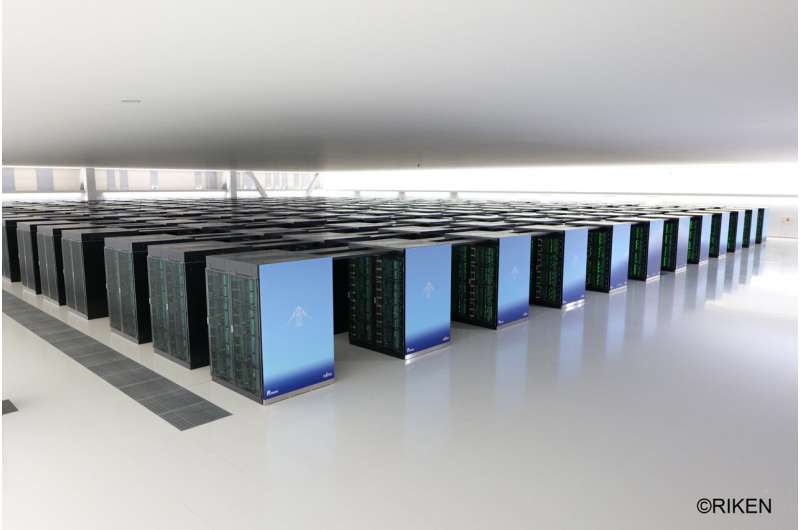This article has been reviewed according to Science X's editorial process and policies. Editors have highlighted the following attributes while ensuring the content's credibility:
fact-checked
peer-reviewed publication
trusted source
proofread
Exploring the evolution of social norms with a supercomputer

Researchers from the RIKEN Center for Computational Science (Japan) and the Max Planck Institute for Evolutionary Biology (Germany) have published new findings on how social norms evolve over time. They simulated how norms promote different social behavior, and how the norms themselves come and go. Because of the enormous number of possible norms, these simulations were run on RIKEN's Fugaku, one of the fastest supercomputers worldwide.
The study was conducted by Dr. Yohsuke Murase from the RIKEN Center for Computational Science in Japan and Dr. Christian Hilbe from the Max Planck Institute for Evolutionary Biology in Plön. The findings are published in the Proceedings of the National Academy of Sciences.
Models of indirect reciprocity describe how social norms promote cooperation. This literature stipulates that people cooperate, in part, to gain a positive reputation. This positive reputation, in turn, can be useful in future interactions.
According to this logic, people donate to charities not only because of their altruistic tendencies. Instead, they also want to increase (or maintain) their social status. The precise relationship between people's cooperative interactions and their social status depends on the social norm in place.
Some communities impose rather strict rules on how people ought to behave, and how people's actions should be evaluated. In contrast, other communities are more tolerant with respect to what their members should do. Interestingly, a community's social norm itself may be subject to evolutionary change. Norms that prove beneficial, or which can be enforced effectively, are comparably stable. Detrimental norms with little support are expected to go extinct.
The dynamics of social norms can be understood with the toolbox of evolutionary theory. Norms that are more successful are expected to spread, whereas inferior norms disappear. Although there has been quite some effort to understand these dynamics quantitatively, existing models have been quite restricted.
Most often, they only permit people to choose from a handful of possible norms. This restriction is due to pragmatic reasons: The more social norms are added to the model, the more complex the model becomes to solve.
To address this challenge, the research group employed large-scale computer simulations. They analyzed the reputation dynamics among all 2,080 norms of a natural complexity class, the so-called "third-order norms." The results are remarkable.
The research shows that cooperative norms are difficult to sustain if the population consists of a single well-mixed community. However, if the population is subdivided into several smaller communities, cooperative norms evolve more easily.
The most successful norm in the simulations is particularly simple. It views cooperation as universally positive and defection as generally negative—except when defection is used as a means to discipline other defectors.
This research offers new insights into the complex interplay between social norms, their induced reputation dynamics, and population structure. It suggests that the structure of a population significantly influences which social norms prevail and how durable cooperation is. The findings contribute to a deeper understanding of the evolution of social norms and their role in fostering cooperative behavior.
More information: Yohsuke Murase et al, Computational evolution of social norms in well-mixed and group-structured populations, Proceedings of the National Academy of Sciences (2024). DOI: 10.1073/pnas.2406885121
Journal information: Proceedings of the National Academy of Sciences
Provided by Max Planck Society





















